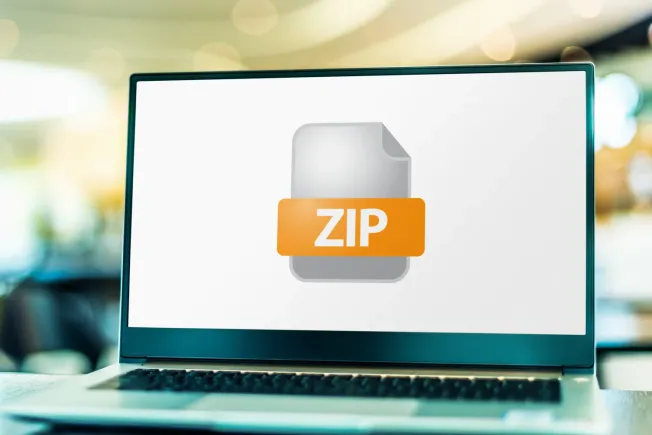
The sales discovery process is your chance to find out more about a prospect's business and pain points, build rapport, and find any roadblocks to a potential sale.
Every prospect brings a unique blend of needs, budget, use cases, and stakeholders. Here's how to ask the right questions, make a great impression, and position yourself for a sale — whether via email or on a sales discovery call.
How should you prepare before asking discovery questions?
Before asking discovery questions, research the prospect’s industry, company, and market position. Review their website, recent news, and financial reports. Analyze competitors and industry trends to identify potential pain points.
This preparation will help you answer many questions before even picking up the phone or composing a new email. It will also help you understand the prospect’s current needs, and ask the questions that are most salient to how your company might help.
You'll now have a shortlist of focused questions. Make sure each of them has earned its spot! Time is precious, and asking too many questions upfront can be overwhelming for a prospect.
What are some effective discovery questions?
A seasoned sales professional will set the stage for a prospect to be passionate about what they offer.
Here are some examples that invite the prospect to get enthusiastic about what they do:
- Tell us about your company: It's important to let them know that you've looked into what they do, but you want to hear it in their own words. This is a simple way for them to describe how their business operates behind the scenes.
- Ask your contact what they'd improve: Your contact likely has the insight to tell you things they find easy and things they find hard. If you ask any person at any company, they've likely found ways to make their job easier. They may have also uncovered things that have made their job harder.
- What metrics are you looking to improve? This question can be a moment where your prospect pauses. They may not have considered a specific KPI that they're looking to track — but this question is important for getting them to consider what they measure as a level of success.
We can also ask some questions based on insight into the prospect's daily activities and thoughts about improvement.
Here are the best questions to consider:
- What are your business goals? This qualifier is great to phrase within the context of a time that makes sense to the customer. Is this a quarterly object? A goal to be met by the end of the year? This can be helpful for your team to know and gauge the time to implement any initiatives.
- When would you like to achieve those goals? This question is a way to nudge the prospect more directly about the previous question. They may provide a direct response of raising their revenue year over year by a certain percentage, but their goal may conflict with their timeline.
- What problems do you face? Give your potential clients an opportunity to let you know the biggest challenges they face. They may uncover more issues that show how you can help them with your solution. It's another opportunity for them to give valuable insight into the operations of their business. Open-ended questions allow the customer to elaborate with no need for specific lines of questioning.
- Ask whether they're having issues in areas where your product offers solutions: By asking if the prospect is experiencing issues in specific fields, you can see if the features of your products are essential to them. Taking the specific problems they face and addressing the ones that you can fix is the key.
- Why does the problem exist? After asking what problems exist, you can see why that issue has come about. It is important for your team to know when implementing the solution. They may not know why the issue exists, but you can at least try to gain as much insight as you can. Everything can be used to build your sales pitch.
- What issues are top priorities to address? Identify if your prospect is seeing roadblocks that are preventing them from growing or getting essential work done. Your sales pitch can amplify the issues or help triage their largest concerns with a rolled-out solution.
- What would a solution to your issue look like? See what your prospect feels is the right step to get the problem solved. It could give you a better sense of how your products may best suit the prospect's needs. This is a great way to get an idea of their expectations and prepare your sales pitch for how you can help them succeed.
- If you don't find a product to fix that issue, what will you do to address it? This question can be a tell regarding whether they plan on fixing the solution or even know where to begin. It could inform you how serious they are about getting their issues solved and could let you know if they're a good fit overall.
What are some disqualifying questions to ask?
While it's important to ask questions that show how you can help, disqualifying questions are equally important. You want to ensure that you can gain a happy customer where your company delivers and will stay on for the long haul.
Some disqualifying questions are:
- What are the roadblocks to your current solution? While this is a direct question it can reveal what issues may be preventing them from becoming a closed sale.
- What's your timeline for a solution? If their timeline and your timeline aren't compatible, this can be another disqualifier.
- What's your budget for the solution? The budget is another key disqualifier. If they don't have the appropriate budget that can match what you provide, there's no need to proceed.
What are some closing questions to ask?
Wrap up the conversation by asking about the future. This primes the prospect to think about next steps and the purchasing process.
Here are some follow-up questions to ask:
- Who will be involved in the purchase decision? In order to get closed deals, you need to know who has the authority to close the deal and what they need to see to finalize the buying process.
- Has a solution been tried before? It could be prudent to know if the prospect has tried someone else before your company. Knowing why that didn't work out can give your sales team leverage or the ability to offer a new solution.
- Are you considering anyone else? If there's competition, it's good to know who you’re up against. This can determine if your salespeople need to become strategic on pricing or offerings.
With these sales discovery call questions in mind, you're ready to tackle your next prospect. Pick your questions carefully for each client, and with your due diligence done beforehand, you should be well prepared.
Superhuman: blazingly fast email for high-performing sales teams
Superhuman is the fastest email experience ever made — and it’s the only inbox designed to save reps hours every week, with sales intelligence and deal collaboration built -in. Try Superhuman for Sales and close more deals with a 13-month year.




